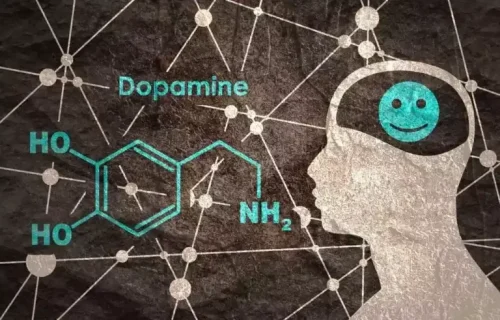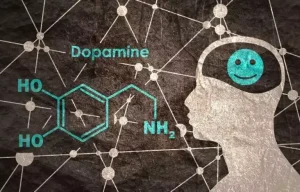
What this means is that as the brain revises its chemical production 2, it becomes more tolerant to the effects of alcohol or drugs. This is especially likely to happen if someone is taking a substance daily and has incorporated it into their routine. As anyone who has taken a drug or binged on alcohol can attest, these substances create powerful feelings of euphoria, and can only do so by disrupting the natural balance of chemicals in the brain.
- Psychological dependence only
- Increased Screen Time as a Cause of Declining Physical, Psychological Health, and Sleep Patterns: A Literary Review
- More on Substance Abuse and Addiction
- The Treatment of Psychological Dependence
- What the DSM-5 Says About Addiction
- Diagnosing the Demon: Medical Assessment of Physiological Addiction
Psychological dependence only

If someone is physically dependent on a drug, their body can only function normally in the presence of this substance. Physiological dependence can be difficult to treat, especially if the person who is experiencing the dependence attempts to take treatment into their own hands. Physical dependence is cyclical and requires specialized effective evidence-based treatment. Therefore, it is ideal to obtain treatment for physiological dependence through a professional treatment provider. Personalized medicine, based on an individual’s genetic makeup and personal history, holds promise for more targeted and effective treatments. Meanwhile, advances in neuroimaging are providing unprecedented views into the addicted brain, potentially leading to new therapeutic approaches.

Increased Screen Time as a Cause of Declining Physical, Psychological Health, and Sleep Patterns: A Literary Review
Talk with your health care provider or see a mental health provider, such as a doctor who specializes in addiction medicine or addiction psychiatry, or a licensed alcohol and drug counselor. Psychological addiction is also known as an emotional or mental dependence on drugs or alcohol. When someone struggles with the psychological ramifications of addiction, they feel a compulsion or overwhelming need to use. People can have just a physical dependence, addiction, or both at the same time. This is when a person depends on a substance or behavior emotionally, such as when stressed. Depending on the severity of an individual’s substance dependency, they may attend inpatient or outpatient rehabilitation treatment.
- The stress of rebuilding a life without substances can take a toll on the body and mind, making individuals more vulnerable to triggers.
- At Gateway, we offer evidence-based treatment that we tailor to your exact needs, depending on the severity of your addiction.
- Reactive oxygen species (ROS) may be produced more frequently as a result of nonthermal interactions, which may cause DNA damage.
- Usually, larger doses are ingested to produce the same effect, which can impact someone’s finances as well as their ability to function over time.
- Drug addiction can start with experimental use of a recreational drug in social situations, and, for some people, the drug use becomes more frequent.
More on Substance Abuse and Addiction
This is especially true in relation to substance dependence, where psychological and physical dependence are closely interconnected. If you believe you have an addiction, it’s never too late to look for help. Working with a health care professional will allow you to explore the options to treat your addiction. Embarking on the journey to recovery from addiction requires support, guidance, and a comprehensive approach. Seeking professional help and establishing a strong support system are two crucial elements in the path to recovery.
The Treatment of Psychological Dependence

The dominant eye primarily experienced transient diplopia and refractive problems (such as short-sightedness), ultimately leading to vision loss 1. Feelings of loneliness and isolation are common among individuals in recovery as they navigate a new way of life without substances. Loneliness can also be triggered by the loss of friends or relationships due to addiction.
- There are countless substances out there that people can become addicted to.
- This physiological process will happen to everyone who is repeatedly exposed to prescription medication, illicit drugs, or alcohol.
- Excessive Internet use has negative effects that are obvious and detrimental, ranging from sleep deprivation, increased depression, and skipping school to family conflict.
Because of this, a person physiological dependance is much more likely to want to eat chocolate regularly in the future. Psychological dependence just refers to the way that some people come to emotionally or mentally rely on a substance. Talking about substance use disorder can be tricky, and not just because it’s a sensitive topic. There are a lot of terms involved that, while related, mean different things.
What the DSM-5 Says About Addiction

The frequency and severity of these symptoms can vary depending on an individual’s brain chemistry, mental health issues, and environment. Substances that produce stronger or quicker effects are also known to increase the severity of these symptoms. Caffeine is an example of a common substance that causes physical dependence. If you can’t function properly in the morning without your cup of coffee, it could be that you are caffeine-dependent.
Diagnosing the Demon: Medical Assessment of Physiological Addiction
- This is distinctly different from psychological addiction, which primarily involves emotional and mental dependence on a substance or behavior.
- Other substances are more subtle in their effect, but they can still carry a strong risk for psychological dependence.
- The societal stigma surrounding addiction and dependence can be a burden for people already grappling with these challenges.
- Infertility is a common condition that affects 7% of men and 11% of women in the U.S. 1.
Understanding and managing these triggers fosters greater emotional regulation and self-awareness, essential elements for sustainable recovery. By recognizing these triggers and taking steps to address them, the HALT technique can help individuals in recovery better manage their emotions and maintain sobriety. To combat this trigger, individuals are encouraged to prioritize self-care practices such as getting enough sleep, taking breaks when needed, and practicing relaxation techniques like meditation or yoga. To address this trigger, individuals are encouraged to establish a support system. This can take the form of attending support group meetings, connecting with loved ones, and engaging in social activities that align with their interests.
Doctors will work with people to find a treatment that works for them that reduces their chances of relapsing, in the case of SUD. Antidepressants are a class of drug that may help reduce anxiety, low mood, and suicidal thoughts. American Addiction Centers (AAC) is committed to delivering original, truthful, accurate, unbiased, and medically current information.


コメント